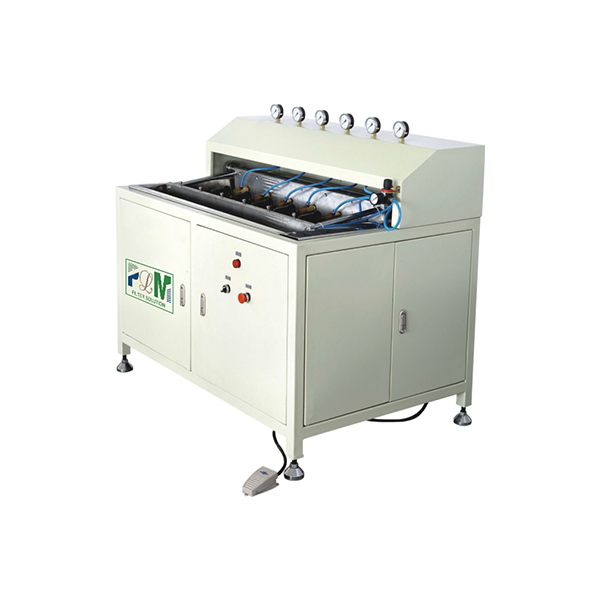Nov . 28, 2024 00:34 Back to list
Manufacturer of Sintered Porous Metal Filter Tubes and Cups for Various Applications
The Innovative World of Sintered Porous Metal Filter Tube Cups
In the realm of filtration technologies, sintered porous metal filter tube cups are emerging as key players due to their unique advantages and versatile applications. These innovative products are crafted from high-quality metal powders that are sintered at elevated temperatures, allowing for the creation of robust, porous structures. This article will delve into the manufacturing process, benefits, and applications of sintered porous metal filter tube cups, highlighting why they are becoming a preferred choice in various industries.
What are Sintered Porous Metal Filter Tube Cups?
Sintered porous metal filter tube cups are filtration devices that allow liquids or gases to pass through while trapping contaminants, particles, and other unwanted substances. The porous structure is generated during the sintering process, where metal powders fuse together without melting, resulting in a solid yet permeable material. This design allows for a range of pore sizes, making it possible to customize the filter's performance based on specific requirements.
The Manufacturing Process
The manufacturing of sintered porous metal filter tube cups involves several steps
1. Powder Selection The process begins with selecting suitable metal powders, commonly stainless steel, bronze, or nickel-based alloys, which offer excellent corrosion resistance and durability.
2. Compaction The metal powder is compacted into a desired shape or form, typically cylindrical for filter tubes. This step ensures that the material density and structural integrity are uniform.
3. Sintering The compacted form is then heated in a controlled atmosphere furnace. The temperature is carefully regulated to promote bonding between the powder particles while maintaining porosity. This step is crucial as it determines the final properties of the filter cup.
4. Post-Processing After sintering, the filter tube cups may undergo additional processes such as machining or surface treatments to enhance performance, reduce surface roughness, or tailor the pore structure.
Advantages of Sintered Porous Metal Filters
1. Durability One of the most significant benefits of sintered porous metal filter tube cups is their long-lasting nature. Metals provide excellent mechanical strength and can withstand extreme temperatures and pressures, making them ideal for demanding applications.
2. Versatility These filter cups can be designed to meet a wide range of filtration needs. The pore size can be engineered to capture specific particles, while the overall size and shape can be customized to fit various systems.
sintered porous metal filter tube cup manufacturer

3. Chemical Resistance Sintered metal filters exhibit high resistance to chemicals, making them suitable for use in harsh environments, including chemical processing, oil and gas industries, and pharmaceutical applications.
4. Easy Maintenance Unlike traditional filter media that require frequent replacement, sintered metal filters can often be cleaned and reused, leading to cost savings and reduced downtime.
5. Environmentally Friendly The durability and reusability of sintered porous metal filters contribute to a lower environmental impact compared to disposable filter media. Additionally, they can be manufactured from recyclable materials.
Applications Across Industries
Sintered porous metal filter tube cups have found applications in a variety of sectors, including
- Water Treatment They are utilized in filtering drinking water to remove impurities and ensure safety.
- Automotive In engine applications, these filters play a crucial role in capturing contaminants from fuel and oil.
- Pharmaceuticals Their ability to provide sterile filtration makes them essential in drug manufacturing processes.
- Food and Beverage Used in wine and beer filtration, ensuring clarity and quality without imparting flavors.
- Oil and Gas Sintered filters are employed in both upstream and downstream processes to ensure the purity of fuels and chemicals.
Conclusion
Sintered porous metal filter tube cups exemplify the evolution of filtration technology, offering durability, efficiency, and versatility across various industries. As awareness of their benefits grows, manufacturers are increasingly integrating these filters into their processes, paving the way for cleaner production and enhanced product quality. As we move forward, the continued innovation in this field promises to yield even more advanced solutions for a cleaner, safer environment.
-
Effective Active Carbon Air Filter for Purifiers | Eliminate Odors
NewsJul.21,2025
-
PLJT-250-25 Full-auto Turntable Clipping Machine | Efficient Automation
NewsJul.20,2025
-
Cheap PLJY109-500 Full-Auto HDAF Expanded Mesh Spiral Coiling Machine - High Efficiency & Quality Manufacturer
NewsJul.08,2025
-
Best PLHJ-6 Full-Auto Eco Filter Rotary Heat Plating Machine - High Efficiency & Eco-Friendly Solution
NewsJul.08,2025
-
High-Efficiency Paper Pleating Machine for Filters Trusted Filter Paper Pleating Machine Company
NewsJul.07,2025
-
High-Performance Oil Filter for Cadillac ATS – Reliable Engine Protection Solutions
NewsJul.07,2025
